#Mount Vernon Kentucky
Explore tagged Tumblr posts
Text
Going home to where I've never been before
Around three weeks from now, my family and I will be making the journey to our new home in Kentucky. This is an answer to many long years of prayers. Not one prayer for one thing but many prayers for many aspects of our lives. In one answer, God answers all. My son, Tristan, has been called as the first student under the elders of New Hope Reformed Church in Mount Vernon, Kentucky. They have…
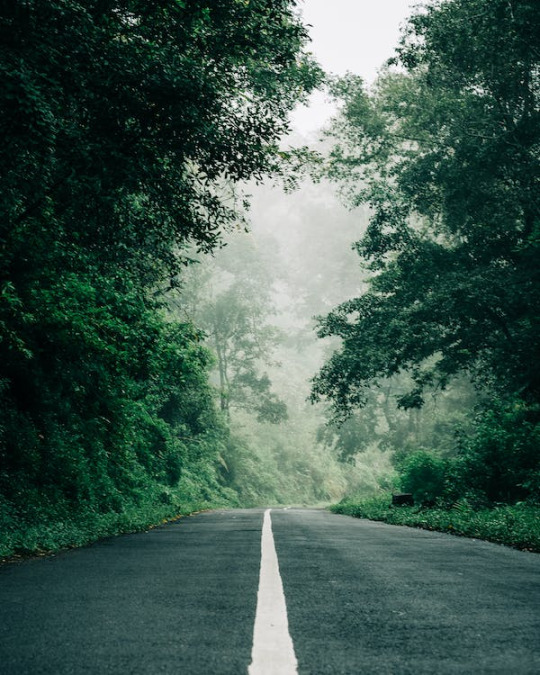
View On WordPress
#abusive#church#God#God answers#God&039;s faithfulness#GoFundMe#health issues#journey#Kentucky#long and winding road#Mount Vernon Kentucky#poverty#Prayer#prayers
2 notes
·
View notes
Text

Doc Adams Road, Mount Vernon, Kentucky.
58 notes
·
View notes
Text

MT. VERNON: QUIET AFTERNOON
Series: Daily Americana 10” x 13” oil on canvas
2 notes
·
View notes
Text
Mount Vernon, Kentucky's Erica Lawson arrested; What happened to her daughter?
Erica Lawson, 21, of Mount Vernon, Rockcastle County, Kentucky, United States has been arrested. In February 2022, she gave birth to a girl. In early July 2023, an uncle of the girl contacted the police department of Middlesboro, Bell County, Kentucky to report that the she was abused. However, he did not know where she was at the time so the department could not locate her.
youtube
View On WordPress
0 notes
Text

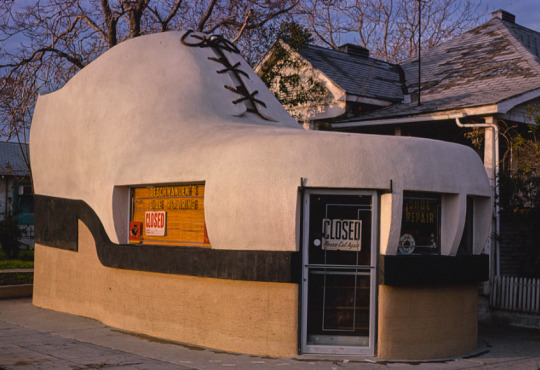
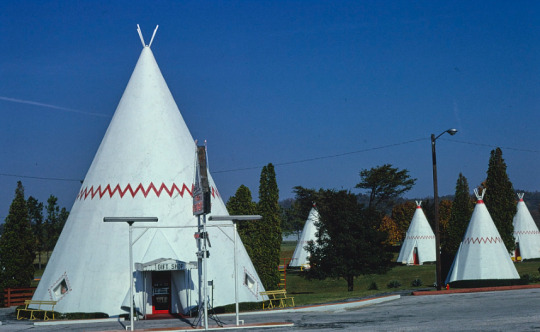

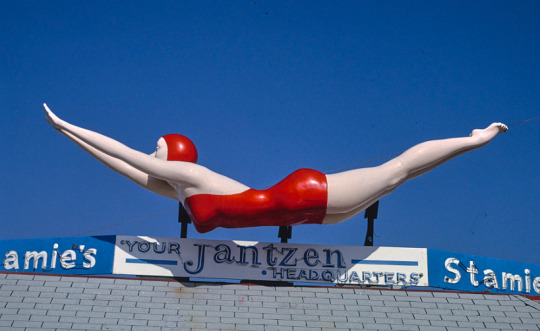
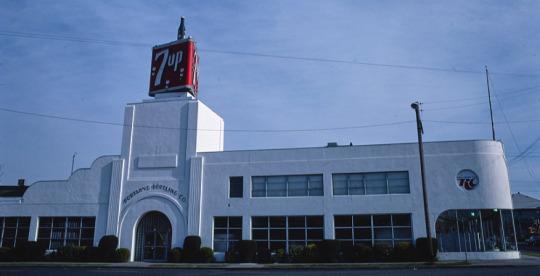
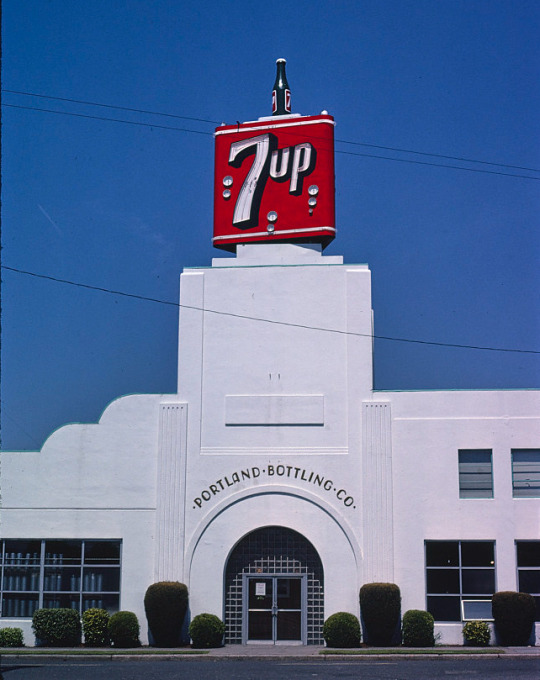



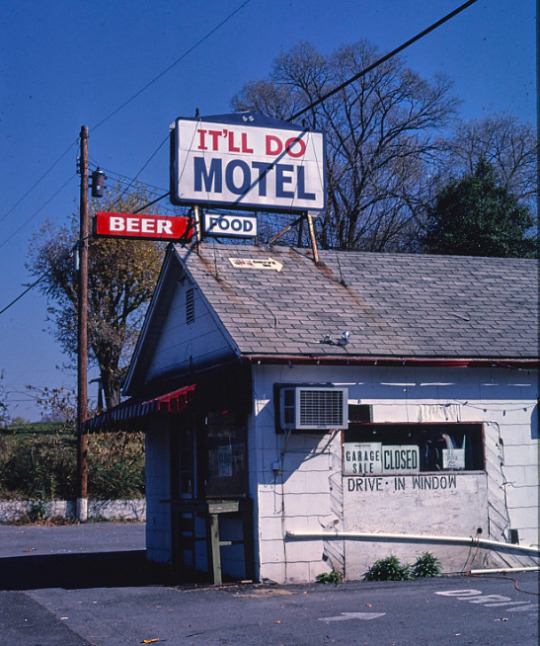

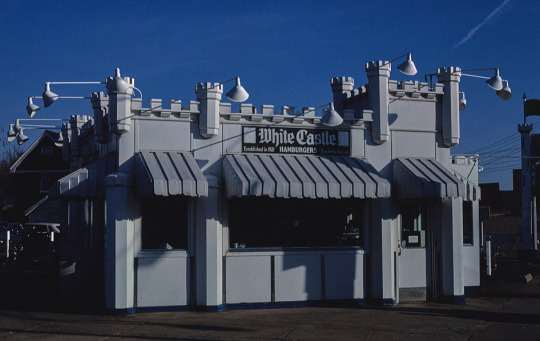

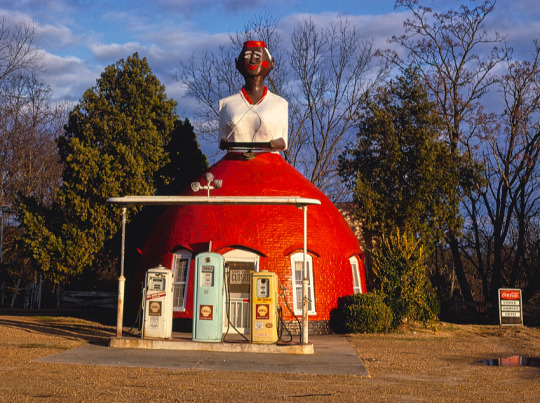
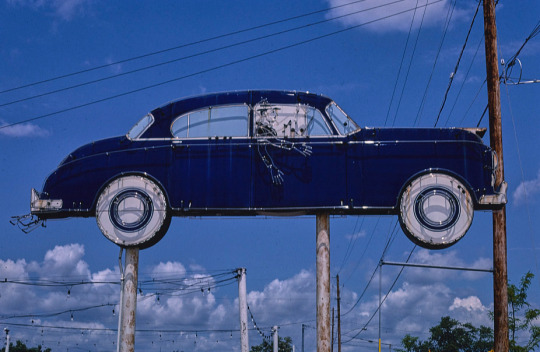


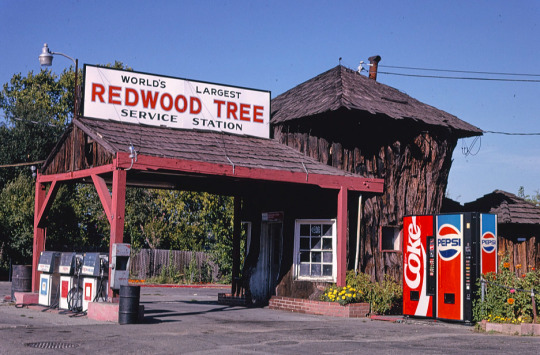
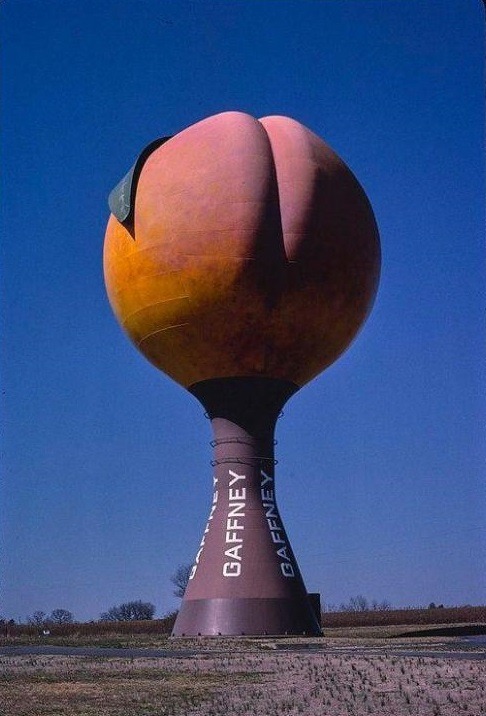


John Margolies (American, 1940-2016)
John Samuel Margolies was an architectural critic, photographer, and author who was noted for celebrating vernacular and novelty architecture in the United States, particularly those designed as roadside attractions. For almost forty years, he documented the most remarkable examples he found, publishing some of his discoveries in books and consigning the rest to an archive, which has now been purchased by the Library of Congress who, in a wonderfully gracious move, have lifted all copyright restrictions on the photographs. (see link below)
Gatorland Zoo alligator statue - Route 1, St. Augustine, Florida - 1979
Deschwanden's Shoe Repair (The Big Shoe) - 10th & Chester, Bakersfield, California - 1977
Wigwam Village #2 - office teepee and several teepee cabins - Route 31W, Cave City, Kentucky - 1979
Wigwam Village #6 - Route 66, Holbrook, Arizona - 1979
Jantzen sign - Stamie's Beachwear - Ocean Avenue, Daytona Beach, Florida - 1990
7-Up Bottling Company (two views) - NE 14 & Sandy Boulevard, Portland, Oregon - 1980
Coca Cola Bottling Company (two views) - 14th & Central Avenue, Los Angeles, California - 1977
Coca Cola Bottling Company (detail view of door) - 14th & Central Avenue, Los Angeles, California - 1977
It'll Do Motel (office) - Jonesborough, Tennessee - 1987
Joy Theater marquee - San Antonio, Texas - 1982
White Castle - Reading Road, Cincinnati, Ohio - 1980
Mammy's Cupboard (two views) - Route 61, Natchez, Mississippi - 1979
Dependable Used Cars sign - Division Street, Grand Rapids, Michigan - 1982
Stan The Tire Man statue - Broadway, Mount Vernon, Illinois - 1988
Bomber gas station - Route 99 E., Milwaukie, Oregon - 1980
World's Largest Redwood Tree Service Station (1936) - Route 101, Ukiah, California - 1991
Peach water tower - Frontage Road, Gaffney, South Carolina - 1988
Christie's Restaurant sign (cowboy shrimp) - Houston, Texas - 1983
Roadside flamingo statue - Frog City, Route 41, Florida - 1980
www.publicdomainreview.org/collection/john-margolies-photographs-of-roadside-america/
addendum: seen (not photographed) in a 2007 trip to Garibaldi/Nehalem/Manzanita Oregon — The Wheeler Inn with a wheelbarrow on the roof with a clothed female mannequin loaded into it . . .
31 notes
·
View notes
Text
Alaska: Igloo, Kodiak bear, Iditarod sled dog race, Denali
Hawaii: pearl harbor, pineapple
washington: Space Needle, apple, mt st helens, rainier national park
oregon: roses, lighthouse, crater lake, oregon trail, hiking
california: redwood tree, white water rafting, gold, golden gate bridge, silicon valley, yosemite national park, wine country, sierra nevada mountains, hollywood, joshua tree
nevada: silver, las vegas strip, hoover dam
idaho: gemstones, potatoes
montana: rocky mountains, glacier national park, grizzly bear, bison
wyoming: yellowstone national park, old faithful geyser, bucking bronco
utah: great salt lake, zion national park, skiing
arizona: lake mead, grand canyon national park, montezuma castle, turquoise, saguaro cactus
new mexico: pueblo, yucca plant, carlsbad caverns
colorado: rocky mountain national park, columbine flower, elk
north dakota: oil, wind energy
south dakota: crazy horse memorial, the badlands, mount rushmore
nebraska: chimney rock, bald eagle, train
kansas: tornadoes, dodge city, sunflower
oklahoma: tomato, wheat, osage shield
texas: cattle, prickly pear cactus, oil refinery, the alamo, NASA Johnson space Center
Minnesota: lake of the woods, wolf, deer
iowa: prairie grass, corn
missouri; Hog, gateway arch
arkansas: razorback hog, banjo
louisiana: crayfish, mardi gras, jazz music
wisconsin: dairy
illinois: Willis tower, tractor, lincoln
michigan: copper, iron ore, automobile manufacturing, motown
indiana: Car
ohio: Rock and Roll Hall of Fame, tires
pennsylvania: street mill, liberty bell
new jersey: constitution
maryland: blue crab
virginia: mount vernon
north carolina: wright brothers national memorial, tobacco farm, great smoky mountains national park, appalachian mountains
south carolina: fort sumter
georgia: peanuts, peach
florida: oranges, kennedy space center, alligator, everglades national park
alabama: cotton, civil rights movement
mississippi: magnolia
tennessee: country music
kentucky: horse racing
west virginia: coal
new york: apple tree, financial market, statue of liberty
massachusetts: american revolution
vermont: maple syrup
new hampshire: fall colors
maine: acadia national park, moose, lobster
And don’t make me repeat it!!!!!!!
7 notes
·
View notes
Text
Holidays 10.19
Holidays
All-Ukrainian Day of Human Responsibility (Ukraine)
Change Your Life Day
Dress Like a Dork Day
Durin’s Day (The Hobbit) [Original Date]
Evaluate Your Life Day
Feast of the Wicked Scam
Freedom to Read Day of Action
Global Niemann-Pick Disease Awareness Day
Imagine a Day Without Water
International Day of Cathedrals
International Day of Service for Kappa Alpha Theta
International Freelancer Day
International Human Rights Day (Turks and Caicos Islands)
International Ska Day
Lawyer’s Day (Moldova)
LGBT Center Awareness Day
Make A Scarecrow Day
Maurice Bishop Day (Grenada)
Mother Theresa Day (Albania)
National Clapping Cheeks Day
National Clean Your Virtual Desktop Day
National Day of Remembrance for Steadfast Clergy (Poland)
National Friendzone Day
National Heroes Day (Grenada)
National Jared Day
National Kentucky Day
National Kiss Your Crush Day
National Payton Summons Day
National Psoriatic Arthritis Awareness Day (Canada)
National Thalassemia Day (UK)
New Friends Day [also 1.19; 7.19]
Oxfordshire Day (UK)
Peruvian-African Friendship Day (Peru)
Rainforest Day
Rescuer Day (Kazakhstan)
Samora Machel Day (Mozambique)
Technology Day (Thailand)
Tomato Day (French Republic)
Women Without Children Day
World Bioethics Day
World Breast Cancer Day (Colombia, Mexico, Peru, Spain)
World Day Against Breast Cancer
World E-Sports Day
World Humanitarian Action Day
World Pediatric Bone and Joint Day
World Slotting Day
World Vagina Day
Yabusame Festival (Koyama, Japan)
Yorktown Day
Food & Drink Celebrations
Greasy Spoon Day
International Gin and Tonic Day
National Seafood Bisque Day
Independence & Related Days
Constitution Day (New Zealand, Niue)
Ikonia (Declared; 2018) [unrecognized]
Niue (1974)
3rd Saturday in October
Bridge Day (West Virginia) [3rd Saturday]
Frabjous Day [3rd Saturday]
Home Movie Day [3rd Saturday]
I Love Yarn Day [3rd Saturday]
International Archeology Day [3rd Saturday]
International Independent Video Store Day [3rd Saturday]
International Repair Day [3rd Saturday]
International Sloth Day [3rd Saturday]
National Bridge Day [3rd Saturday]
National Fetch Day [3rd Saturday]
National Harp Day (Ireland) [3rd Saturday]
National Mover Over Day [3rd Saturday]
National Paint Your Own Pottery Day [3rd Saturday]
National Slow Down Day [3rd Saturday]
National Surfing Day (Costa Rica) [3rd Saturday]
National Whole Hog Barbecue Day [3rd Saturday]
O. Henry Pun-Off World Championships [3rd Saturday]
Raw Milk Cheese Appreciation Day [3rd Saturday]
Sandwich Saturday [Every Saturday]
Sharing Economy Saturday [3rd Saturday]
Six For Saturday [Every Saturday]
Spaghetti Saturday [Every Saturday]
Sweetest Day [3rd Saturday]
World Singing Day [3rd Saturday]
Weekly Holidays beginning October 19 (2nd Full Week of October)
Finno-Ugrian Days (Hõimupäev; Estonia)
Festivals Beginning October 19, 2024
Apple Butter Festival (Lansing, Michigan) [thru 10.20]
Apple Dumpling Festival (Stuart, Virginia)
Apple Harvest Festival (Waynesville, North Carolina)
Borrego Days Desert Festival (San Diego, California) [thru 10.20]
Bowen’s Wharf Seafood Festival (Newport, Rhode Island) [thru 10.20]
Chatsworth Cranberry Festival (Chatsworth, New Jersey) [thru 10.20]
Chili Cookoff (Fort Pierce, Florida)
Cleveland Apple Festival (Cleveland, Tennessee) [thru 10.20]
Cochran-Bleckley Country Fest (Cochran, Georgia)
Conecuh Sausage Festival (Evergreen, Alabama)
Dairyville Orchard Festival (Los Molinos, California)
Deep Roots Festival XX (Milledgeville, Georgia)
Dessert Wars (Charlotte, North Carolina)
Detroit Fall Beer Festival (Detroit, Michigan)
Elkhorn's Oktoberfest (Elkhorn, Wisconsin)
Fall Harvest Festival (Mount Vernon, Virginia) [thru 10.20]
Gainesville Chicken Festival Chicken Cook-Off (Gainesville, Georgia)
Half Moon Bay Art & Pumpkin Festival (Half Moon Bay, California)
Herb Market (San Antonio, Texas)
Holy Trinity Heritage Food Fair (Baltimore, Maryland) [thru 10.20]
Hop N Hog Culpeper Block Party & BBQ Competition (Culpeper, Virginia)
Kenmare GooseFest (Kenmare, North Dakota) [thru 10.24]
Loris Bog-Off Festival (Loris, South Carolina)
Macomb County HarvestFest (Sterling Heights, Michigan) [thru 10.20]
Marunada Chestnut Festival (Dobreć, Croatia) [thru 10.20]
Missouri Chestnut Roast Festival (New Franklin, Missouri)
Mystic Apple Festival (Mystic, Connecticut) [thru 10.20]
NC Fall Liver Mush Festival: Mush, Music & Mutts (Shelby, North Carolina)
New York Empanada Festival (Newburgh, New York)
North Carolina Oyster Festival (Ocean Isle Beach, North Carolina) [thru 10.20]
NYS Sheep & Wool Festival (Rhinebeck, New York) [thru 10.20]
Oktoberfest (Campbell, California) [thru 10.20]
Outer Banks Seafood Festival (Nag's Head, North Carolina)
Pumpkinfest (Franklin, North Carolina)
Return of the Salmon Festival (Anderson, California)
San Diego Spirits Festival (San Diego, California)
Santa Barbara Vintners Festival (Solvang, California)
Seafood Festival (Cedar Key, Florida) [thru 10.20]
Springville Apple Festival (Springville, California)
Taco Fest (Scottsdale, Arizona)
Taste of Soul (Los Angeles, California)
Taylorsville Apple Festival (Taylorsville, North Carolina)
Tennessee Beer, Wine & Shine Festival (Nashville, Tennessee)
Town Point Virginia Wine Festival (Norfolk, Virginia) [thru 10.20]
U.S. National Oyster Festival in St. Mary’s County (St. Mary's County, Maryland) [thru 10.20]
Vimoutiers Apple Festival (Vimoutiers, France) [thru 10.20]
Wellfleet Oysterfest (Wellfleet, Massachusetts) [thru 10.20]
Westy Fest (Westminster, Colorado)
Whiskey Wine & Fire (Timonium, Maryland)
Yadkin Valley Grape Festival (Yadkinville, North Carolina)
Feast Days
Aaron (Coptic Orthodox Church of Alexandria)
Aquilinus of Évreux (Christian; Saint)
Armilustrium (Ancient Roman Festival of Mars)
Barbarella Day (Church of the SubGenius; Saint)
Bettara Ichi (Pickle Market a.k.a. Sticky-Sticky Fair; Ebisu Shrine, Tokyo, Japan)
Carista: Day of Peace in the Family (Pagan)
Desiderius (Didier) of Auxerre (Christian; Saint)
Diderot (Positivist; Saint)
Emma Bell Miles (Artology)
Ethbin (a.k.a. Egbin; Christian; Saint)
Frideswide (Christian; Saint)
Giorgio Cavazzano (Artology)
Henry Martyn (Anglican Communion)
Isaac Jogues, Jean de Brébeuf, and Companions (Christian; Saints)
Jerzy Popiełuszko (Christian; Blessed)
John le Carré (Writerism)
Paul of the Cross (Christian; Saint)
Peter Max (Artology)
Peter of Alcantara (Christian; Saint)
Philip Pullman (Writerism)
Pierre Alechinsky (Artology)
Prides (Christian; Saint)
Ptolemaeus and Lucius (Christian; Saint)
Rene Goupil (Christian; Saint)
Seek the King Week (Shamanism)
Theodoros Vryzakis (Artology)
Travel Poobah (Muppetism)
Try Not To Die Day (Pastafarian)
Umberto Boccioni (Artology)
Varus (Christian; Saint)
Veranus of Cavaillon (Christian; Saint)
William Carey (Episcopal Church)
Lucky & Unlucky Days
Sensho (先勝 Japan) [Good luck in the morning, bad luck in the afternoon.]
Umu Limnu (Evil Day; Babylonian Calendar; 48 of 60)
Premieres
Angels in the Outfield (Film; 1951)
Antipop, by Primus (Album; 1999)
Believe, by Cher (Song; 1999)
The Boys Bounce Back or Springtime in the Rocky (Rocky & Bullwinkle Cartoon, S6, Ep. 312; 1964)
A Chorus Line (Broadway Musical; 1975)
Clerks (Film; 1994)
Counterparts, by Rush (Album; 1993)
Damn the Torpedoes, by Tom Petty (Album; 1979)
The Enchanter, by Vladimir Nabokov (Short Story; 1986) [published posthumously]
Fahrenheit 451, by Ray Bradbury (Novel; 1953)
Fried Chicken (Terrytoons Cartoon; 1930)
The Gay Divorcee (Film; 1934)
Honeyland (Ub Iwerks Happy Harmonies MGM Cartoon; 1935)
Hound for Pound (Noveltoons Cartoon; 1963)
Injustice (Animated Film; 2021)
I Second That Emotion, by Smokey Robinson and the Miracles (Song; 1967)
Le Belle Sauvage, by Philip Pullman (Novel; 2017) [The Book of Dust Trilogy #1]
Let’s Stalk Spinach (Fleischer/Famous Popeye Cartoon; 1951)
Looking for Mr. Goodbar (Film; 1977)
Mr. Smith Goes to Washington (Film; 1939)
Mucho Loma, Part 1 (Rocky & Bullwinkle Cartoon, S6, Ep. 311; 1964)
Mulholland Drive (Film; 2001)
Mylo Xyloto, by Coldplay (Album; 2011)
Pin Ups, by David Bowie (Album; 1973)
The Planet Mouseola (Noveltoons Cartoon; 1960)
Prince, by Prince (Album; 1979)
The Razor’s Edge (Film; 1984)
Riding in Cars with Boys (Film; 2001)
Rockin’ Around the Christmas Tree, recorded by Brenda Lee (Song; 1958)
Sir Irving and James (Noveltoons Cartoon; 1956)
Stop Making Sense, by Talking Heads (Film; 1984)
Take On Me, by A-ha (Song; 1985)
Tally-Hokum (Noveltoons Cartoon; 1965)
Tannhäuser, by Richard Wagner (Opera; 1845)
A Tiger’s Tail (Noveltoons Cartoon; 1964)
Turtle Scoop (Noveltoons Cartoon; 1961)
Vs., by Pearl Jam (Album; 1993)
Waking Life (Animated Film; 2001)
Watership Down (US Animated Film; 1978)
Wednesday Morning, 3 A.M., by Simon & Garfunkel (Album; 1963)
Who’s Who in the Jungle (Terrytoons Cartoon; 1945)
Yule Laff (Noveltoons Cartoon; 1962)
Today’s Name Days
Frieda, Isaak, Johannes, Paul, Peter, Petrus (Austria)
Ivan, Izak, Joel, Pavao (Croatia)
Michaela (Czech Republic)
Balthasar (Denmark)
Stella, Tähte, Tähti (Estonia)
Uljas (Finland)
Cléo, René (France)
Frieda, Frida, Isaak, Paul (Germany)
Cleopatra, Felix (Greece)
Nándor (Hungary)
Isaac, Laura (Italy)
Drosma, Drosme, Drosmis, Elīna, Valts (Latvia)
Geisvilas, Kantrimė, Kleopatra, Laura (Lithuania)
Tora, Tore (Norway)
Ferdynand, Fryda, Pelagia, Pelagiusz, Piotr, Siemowit, Skarbimir, Toma, Ziemowit (Poland)
Ioil (Romania)
Kristián (Slovakia)
Laura, Pablo, Pedro (Spain)
Tor, Tore (Sweden)
Cleo, Cleon, Cleopatra, Howard, Howie (USA)
Today is Also…
Day of Year: Day 293 of 2024; 73 days remaining in the year
ISO: Day 6 of Week 42 of 2024
Celtic Tree Calendar: Gort (Ivy) [Day 21 of 28]
Chinese: Month 9 (Jia-Xu), Day 17 (Bing-Chen)
Chinese Year of the: Dragon 4722 (until January 29, 2025) [Wu-Chen]
Hebrew: 17 Tishri 5785
Islamic: 15 Rabi II 1446
J Cal: 23 Orange; Twosday [23 of 30]
Julian: 6 October 2024
Moon: 92%: Waning Gibbous
Positivist: 13 Descartes (11th Month) [George Leroy / Cabanis]
Runic Half Month: Gyfu (Gift) [Day 13 of 15]
Season: Autumn or Fall (Day 28 of 90)
Week: 3rd Full Week of October
Zodiac: Libra (Day 27 of 30)
3 notes
·
View notes
Text

On this day:
FLYING MEN
On January 6, 1948, in Chehalis, Washington, Bernice Zaikowski and several children coming home from school saw a man flying through the sky. They went into the garden for a better look. The flyer was hovering at twenty feet over the barn and had long, silver mechanical wings strapped to his shoulders. The fellow controlled them via an instrument panel attached to his chest, while he flew in an upright position. A whizzing noise accompanied his progress.
In Longview, Washington, three months later, James Pittman and Viola Johnson observed three men flying above the city. They could hear motors, but did not see any devices connected to the flyers, whose feet were dangling while they flew. Johnson said they appeared to be wearing helmets and that they were looking around as they went.
In 1953, Hilda Walker and two friends in Houston, Texas, were sitting on the front porch of their apartment building, enjoying an early morning breeze, when Hilda saw a huge shadow across the lawn. She said, "I thought at first it was the magnified reflection of a big moth caught in a nearby street light. Then the shadow seemed to bounce upward into a pecan tree." The "shadow" was a man, six and a half feet tall, dressed in tight-fitting black clothing, with a cape and quarter-length boots. A halo of light surrounded him, and big folded wings could be seen at his shoulders. After fifteen minutes, an unnamed witness said, he "just melted away" A swish was heard, and then a rocket-shaped object blasted off.
In 1897, in Mount Vernon, Illinois, the town mayor and 100 citizens saw something that "resembled the body of a huge man swimming through the air with an electric light on his back." The first known report of this kind— of a man flying with mechanical aid of some kind attached to his body—was recorded in Kentucky, in 1880.
Text from: Almanac of the Infamous, the Incredible, and the Ignored by Juanita Rose Violins, published by Weiser Books, 2009
10 notes
·
View notes
Text
Kentucky Votes "Yes" to Medical Cannabis! 🌱
By gubernatorial decree, Medical Marijuana is officially waking up the Bluegrass! A century-long prohibition on access is finally lifting, with all 120 counties automatically opted in. Some counties put it to a vote, and every single one said yes! The message is clear: Kentucky wants cannabis.
Top Results: Anderson County — 71% Yes Bourbon County — 72% Yes Bullitt County — 74% Yes Clay County — 68% Yes Clark County — 72% Yes Hardin County — 70% Yes Nelson County — 75% Yes Shelby County — 68% Yes Scott County — 70% Yes
And that's just the beginning! See the full list below to check out the wave of support across the state.
TL;DR: Kentucky stands behind medical cannabis. From rural counties to big cities, Kentuckians voted with a resounding Yes—time to make this change real!
Anderson County — 71% yes, 29% no
Ballard County — 60% yes, 40% no
Bourbon County — 72% yes, 28% no
Bullitt County — 74% yes, 26% no
Butler County — 61% yes, 39% no
Carlisle County — 55% yes, 45% no
Carroll County — 65% yes, 35% no
Carter County — 64% yes, 36% no
Caldwell County — 60% yes, 40% no
Calloway County — 63% yes, 37% no
Clay County — 68% yes, 32% no
Clark County — 72% yes, 28% no
Crittenden County — 54% yes, 46% no
Edmonson County — 57% yes, 43% no
Elliot County — 67% yes, 33% no
Grant County — 58% yes, 42% no
Grayson County — 65% yes, 35% no
Hancock County — 68% yes, 32% no
Hardin County — 70% yes, 30% no
Hart County — 61% yes, 39% no
Henry County — 71% yes, 29% no
Hickman County — 54% yes, 46% no
Jackson County — 59% yes, 41% no
Knox County — 66% yes, 34% no
Lawrence County — 60% yes, 40% no
Leslie County — 68% yes, 32% no
Lewis County — 57% yes, 43% no
Livingston County — 59% yes, 41% no
Logan County — 65% yes, 35% no
Lyon County — 61% yes, 39% no
Marion County — 76% yes, 24% no
McLean County — 60% yes, 40% no
Meade County — 70% yes, 30% no
Menifee County — 65% yes, 35% no
Metcalfe County — 59% yes, 41% no
Mercer County — 66% yes, 34% no
Monroe County — 55% yes, 45% no
Morgan County — 62% yes, 38% no
Muhlenberg County — 65% yes, 35% no
Nelson County — 75% yes, 25% no
Owsley County — 66% yes, 34% no
Pendleton County — 64% yes, 36% no
Robertson County — 63% yes, 37% no
Scott County — 70% yes, 30% no
Shelby County — 68% yes, 32% no
Taylor County — 64% yes, 36% no
Todd County — 62% yes, 38% no
Trigg County — 63% yes, 37% no
Union County — 63% yes, 37% no
Washington County — 67% yes, 33% no
Webster County — 59% yes, 41% no
Woodford County — 68% yes, 32% no
Adairville in Logan County — 63% yes, 37% no
Alexandria in Campbell County — 61% yes, 39% no
Auburn in Logan County — 63% yes, 37% no
Bardstown in Nelson County — 78% yes, 22% no
Bellevue in Campbell County — 76% yes, 24% no
Burkesville in Cumberland County — 60% yes, 40% no
Cadiz in Trigg County — 67% yes, 33% no
Clay in Webster County — 56% yes, 44% no
Coal Run Village in Pike County — 64% yes, 36% no
Dixon in Webster County — 57% yes, 43% no
Eminence in Henry County — 72% yes, 28% no
Falmouth in Pendleton County — 59% yes, 41% no
Florence in Boone County — 65% yes, 35% no
Franklin in Simpson County — 69% yes, 31% no
Georgetown in Scott County — 72% yes, 28% no
Greensburg in Green County — 64% yes, 36% no
Hickman in Fulton County — 65% yes, 35% no
Horse Cave in Hart County — 65% yes, 35% no
Kuttawa in Lyon County — 61% yes, 39% no
London in Laurel County — 66% yes, 34% no
Manchester in Clay County — 69% yes, 31% no
Marion in Crittenden County — 60% yes, 40% no
McKee in Jackson County — 68% yes, 32% no
Millersburg in Bourbon County — 64% yes, 36% no
Monticello in Wayne County — 58% yes, 42% no
Morganfield in Union County — 66% yes, 34% no
Mount Vernon in Rockcastle County — 59% yes, 41% no
Mt. Washington in Bullitt County — 70% yes, 30% no
Munfordville in Hart County — 66% yes, 34% no
Murray in Calloway County — 67% yes, 33% no
North Middletown in Bourbon County — 65% yes, 35% no
Russell in Greenup County — 58% yes, 42% no
Salem in Livingston County — 55% yes, 45% no
Sandy Hook in Elliott County — 70% yes, 30% no
Sebree in Webster County — 60% yes, 40% no
Shelbyville in Shelby County — 72% yes, 28% no
Southgate in Campbell County — 71% yes, 29% no
South Shore in Greenup County — 66% yes, 34% no
Sturgis in Union County — 62% yes, 38% no
Union in Boone County — 52% yes, 48% no
Uniontown in Union County — 68% yes, 32% no
Vine Grove in Hardin County — 67% yes, 33% no
Warsaw in Gallatin County — 61 % yes, 39% no
West Point in Hardin County — 71% yes, 29% no
Wilder in Campbell County — 62% yes, 38% no
#medical cannabis#kentucky#vote#care and compassion#Kentucky#BluegrassState#KYVotes#KentuckyLife#KentuckyProud#KYStrong#KYPolitics#KentuckyNews#RuralKentucky#KentuckyCounties#MedicalMarijuana#CannabisCommunity#KYCannabis#KentuckyCannabis#MedicalCannabis#CannabisLaw#CannabisVote#CannabisReform#EndProhibition#CannabisIsMedicine#CannabisLegalization#VoteYes#KYBallot#CannabisPolitics#VoteForChange#CannabisPolicy
0 notes
Text
Holidays 10.19
Holidays
All-Ukrainian Day of Human Responsibility (Ukraine)
Change Your Life Day
Dress Like a Dork Day
Durin’s Day (The Hobbit) [Original Date]
Evaluate Your Life Day
Feast of the Wicked Scam
Freedom to Read Day of Action
Global Niemann-Pick Disease Awareness Day
Imagine a Day Without Water
International Day of Cathedrals
International Day of Service for Kappa Alpha Theta
International Freelancer Day
International Human Rights Day (Turks and Caicos Islands)
International Ska Day
Lawyer’s Day (Moldova)
LGBT Center Awareness Day
Make A Scarecrow Day
Maurice Bishop Day (Grenada)
Mother Theresa Day (Albania)
National Clapping Cheeks Day
National Clean Your Virtual Desktop Day
National Day of Remembrance for Steadfast Clergy (Poland)
National Friendzone Day
National Heroes Day (Grenada)
National Jared Day
National Kentucky Day
National Kiss Your Crush Day
National Payton Summons Day
National Psoriatic Arthritis Awareness Day (Canada)
National Thalassemia Day (UK)
New Friends Day [also 1.19; 7.19]
Oxfordshire Day (UK)
Peruvian-African Friendship Day (Peru)
Rainforest Day
Rescuer Day (Kazakhstan)
Samora Machel Day (Mozambique)
Technology Day (Thailand)
Tomato Day (French Republic)
Women Without Children Day
World Bioethics Day
World Breast Cancer Day (Colombia, Mexico, Peru, Spain)
World Day Against Breast Cancer
World E-Sports Day
World Humanitarian Action Day
World Pediatric Bone and Joint Day
World Slotting Day
World Vagina Day
Yabusame Festival (Koyama, Japan)
Yorktown Day
Food & Drink Celebrations
Greasy Spoon Day
International Gin and Tonic Day
National Seafood Bisque Day
Independence & Related Days
Constitution Day (New Zealand, Niue)
Ikonia (Declared; 2018) [unrecognized]
Niue (1974)
3rd Saturday in October
Bridge Day (West Virginia) [3rd Saturday]
Frabjous Day [3rd Saturday]
Home Movie Day [3rd Saturday]
I Love Yarn Day [3rd Saturday]
International Archeology Day [3rd Saturday]
International Independent Video Store Day [3rd Saturday]
International Repair Day [3rd Saturday]
International Sloth Day [3rd Saturday]
National Bridge Day [3rd Saturday]
National Fetch Day [3rd Saturday]
National Harp Day (Ireland) [3rd Saturday]
National Mover Over Day [3rd Saturday]
National Paint Your Own Pottery Day [3rd Saturday]
National Slow Down Day [3rd Saturday]
National Surfing Day (Costa Rica) [3rd Saturday]
National Whole Hog Barbecue Day [3rd Saturday]
O. Henry Pun-Off World Championships [3rd Saturday]
Raw Milk Cheese Appreciation Day [3rd Saturday]
Sandwich Saturday [Every Saturday]
Sharing Economy Saturday [3rd Saturday]
Six For Saturday [Every Saturday]
Spaghetti Saturday [Every Saturday]
Sweetest Day [3rd Saturday]
World Singing Day [3rd Saturday]
Weekly Holidays beginning October 19 (2nd Full Week of October)
Finno-Ugrian Days (Hõimupäev; Estonia)
Festivals Beginning October 19, 2024
Apple Butter Festival (Lansing, Michigan) [thru 10.20]
Apple Dumpling Festival (Stuart, Virginia)
Apple Harvest Festival (Waynesville, North Carolina)
Borrego Days Desert Festival (San Diego, California) [thru 10.20]
Bowen’s Wharf Seafood Festival (Newport, Rhode Island) [thru 10.20]
Chatsworth Cranberry Festival (Chatsworth, New Jersey) [thru 10.20]
Chili Cookoff (Fort Pierce, Florida)
Cleveland Apple Festival (Cleveland, Tennessee) [thru 10.20]
Cochran-Bleckley Country Fest (Cochran, Georgia)
Conecuh Sausage Festival (Evergreen, Alabama)
Dairyville Orchard Festival (Los Molinos, California)
Deep Roots Festival XX (Milledgeville, Georgia)
Dessert Wars (Charlotte, North Carolina)
Detroit Fall Beer Festival (Detroit, Michigan)
Elkhorn's Oktoberfest (Elkhorn, Wisconsin)
Fall Harvest Festival (Mount Vernon, Virginia) [thru 10.20]
Gainesville Chicken Festival Chicken Cook-Off (Gainesville, Georgia)
Half Moon Bay Art & Pumpkin Festival (Half Moon Bay, California)
Herb Market (San Antonio, Texas)
Holy Trinity Heritage Food Fair (Baltimore, Maryland) [thru 10.20]
Hop N Hog Culpeper Block Party & BBQ Competition (Culpeper, Virginia)
Kenmare GooseFest (Kenmare, North Dakota) [thru 10.24]
Loris Bog-Off Festival (Loris, South Carolina)
Macomb County HarvestFest (Sterling Heights, Michigan) [thru 10.20]
Marunada Chestnut Festival (Dobreć, Croatia) [thru 10.20]
Missouri Chestnut Roast Festival (New Franklin, Missouri)
Mystic Apple Festival (Mystic, Connecticut) [thru 10.20]
NC Fall Liver Mush Festival: Mush, Music & Mutts (Shelby, North Carolina)
New York Empanada Festival (Newburgh, New York)
North Carolina Oyster Festival (Ocean Isle Beach, North Carolina) [thru 10.20]
NYS Sheep & Wool Festival (Rhinebeck, New York) [thru 10.20]
Oktoberfest (Campbell, California) [thru 10.20]
Outer Banks Seafood Festival (Nag's Head, North Carolina)
Pumpkinfest (Franklin, North Carolina)
Return of the Salmon Festival (Anderson, California)
San Diego Spirits Festival (San Diego, California)
Santa Barbara Vintners Festival (Solvang, California)
Seafood Festival (Cedar Key, Florida) [thru 10.20]
Springville Apple Festival (Springville, California)
Taco Fest (Scottsdale, Arizona)
Taste of Soul (Los Angeles, California)
Taylorsville Apple Festival (Taylorsville, North Carolina)
Tennessee Beer, Wine & Shine Festival (Nashville, Tennessee)
Town Point Virginia Wine Festival (Norfolk, Virginia) [thru 10.20]
U.S. National Oyster Festival in St. Mary’s County (St. Mary's County, Maryland) [thru 10.20]
Vimoutiers Apple Festival (Vimoutiers, France) [thru 10.20]
Wellfleet Oysterfest (Wellfleet, Massachusetts) [thru 10.20]
Westy Fest (Westminster, Colorado)
Whiskey Wine & Fire (Timonium, Maryland)
Yadkin Valley Grape Festival (Yadkinville, North Carolina)
Feast Days
Aaron (Coptic Orthodox Church of Alexandria)
Aquilinus of Évreux (Christian; Saint)
Armilustrium (Ancient Roman Festival of Mars)
Barbarella Day (Church of the SubGenius; Saint)
Bettara Ichi (Pickle Market a.k.a. Sticky-Sticky Fair; Ebisu Shrine, Tokyo, Japan)
Carista: Day of Peace in the Family (Pagan)
Desiderius (Didier) of Auxerre (Christian; Saint)
Diderot (Positivist; Saint)
Emma Bell Miles (Artology)
Ethbin (a.k.a. Egbin; Christian; Saint)
Frideswide (Christian; Saint)
Giorgio Cavazzano (Artology)
Henry Martyn (Anglican Communion)
Isaac Jogues, Jean de Brébeuf, and Companions (Christian; Saints)
Jerzy Popiełuszko (Christian; Blessed)
John le Carré (Writerism)
Paul of the Cross (Christian; Saint)
Peter Max (Artology)
Peter of Alcantara (Christian; Saint)
Philip Pullman (Writerism)
Pierre Alechinsky (Artology)
Prides (Christian; Saint)
Ptolemaeus and Lucius (Christian; Saint)
Rene Goupil (Christian; Saint)
Seek the King Week (Shamanism)
Theodoros Vryzakis (Artology)
Travel Poobah (Muppetism)
Try Not To Die Day (Pastafarian)
Umberto Boccioni (Artology)
Varus (Christian; Saint)
Veranus of Cavaillon (Christian; Saint)
William Carey (Episcopal Church)
Lucky & Unlucky Days
Sensho (先勝 Japan) [Good luck in the morning, bad luck in the afternoon.]
Umu Limnu (Evil Day; Babylonian Calendar; 48 of 60)
Premieres
Angels in the Outfield (Film; 1951)
Antipop, by Primus (Album; 1999)
Believe, by Cher (Song; 1999)
The Boys Bounce Back or Springtime in the Rocky (Rocky & Bullwinkle Cartoon, S6, Ep. 312; 1964)
A Chorus Line (Broadway Musical; 1975)
Clerks (Film; 1994)
Counterparts, by Rush (Album; 1993)
Damn the Torpedoes, by Tom Petty (Album; 1979)
The Enchanter, by Vladimir Nabokov (Short Story; 1986) [published posthumously]
Fahrenheit 451, by Ray Bradbury (Novel; 1953)
Fried Chicken (Terrytoons Cartoon; 1930)
The Gay Divorcee (Film; 1934)
Honeyland (Ub Iwerks Happy Harmonies MGM Cartoon; 1935)
Hound for Pound (Noveltoons Cartoon; 1963)
Injustice (Animated Film; 2021)
I Second That Emotion, by Smokey Robinson and the Miracles (Song; 1967)
Le Belle Sauvage, by Philip Pullman (Novel; 2017) [The Book of Dust Trilogy #1]
Let’s Stalk Spinach (Fleischer/Famous Popeye Cartoon; 1951)
Looking for Mr. Goodbar (Film; 1977)
Mr. Smith Goes to Washington (Film; 1939)
Mucho Loma, Part 1 (Rocky & Bullwinkle Cartoon, S6, Ep. 311; 1964)
Mulholland Drive (Film; 2001)
Mylo Xyloto, by Coldplay (Album; 2011)
Pin Ups, by David Bowie (Album; 1973)
The Planet Mouseola (Noveltoons Cartoon; 1960)
Prince, by Prince (Album; 1979)
The Razor’s Edge (Film; 1984)
Riding in Cars with Boys (Film; 2001)
Rockin’ Around the Christmas Tree, recorded by Brenda Lee (Song; 1958)
Sir Irving and James (Noveltoons Cartoon; 1956)
Stop Making Sense, by Talking Heads (Film; 1984)
Take On Me, by A-ha (Song; 1985)
Tally-Hokum (Noveltoons Cartoon; 1965)
Tannhäuser, by Richard Wagner (Opera; 1845)
A Tiger’s Tail (Noveltoons Cartoon; 1964)
Turtle Scoop (Noveltoons Cartoon; 1961)
Vs., by Pearl Jam (Album; 1993)
Waking Life (Animated Film; 2001)
Watership Down (US Animated Film; 1978)
Wednesday Morning, 3 A.M., by Simon & Garfunkel (Album; 1963)
Who’s Who in the Jungle (Terrytoons Cartoon; 1945)
Yule Laff (Noveltoons Cartoon; 1962)
Today’s Name Days
Frieda, Isaak, Johannes, Paul, Peter, Petrus (Austria)
Ivan, Izak, Joel, Pavao (Croatia)
Michaela (Czech Republic)
Balthasar (Denmark)
Stella, Tähte, Tähti (Estonia)
Uljas (Finland)
Cléo, René (France)
Frieda, Frida, Isaak, Paul (Germany)
Cleopatra, Felix (Greece)
Nándor (Hungary)
Isaac, Laura (Italy)
Drosma, Drosme, Drosmis, Elīna, Valts (Latvia)
Geisvilas, Kantrimė, Kleopatra, Laura (Lithuania)
Tora, Tore (Norway)
Ferdynand, Fryda, Pelagia, Pelagiusz, Piotr, Siemowit, Skarbimir, Toma, Ziemowit (Poland)
Ioil (Romania)
Kristián (Slovakia)
Laura, Pablo, Pedro (Spain)
Tor, Tore (Sweden)
Cleo, Cleon, Cleopatra, Howard, Howie (USA)
Today is Also…
Day of Year: Day 293 of 2024; 73 days remaining in the year
ISO: Day 6 of Week 42 of 2024
Celtic Tree Calendar: Gort (Ivy) [Day 21 of 28]
Chinese: Month 9 (Jia-Xu), Day 17 (Bing-Chen)
Chinese Year of the: Dragon 4722 (until January 29, 2025) [Wu-Chen]
Hebrew: 17 Tishri 5785
Islamic: 15 Rabi II 1446
J Cal: 23 Orange; Twosday [23 of 30]
Julian: 6 October 2024
Moon: 92%: Waning Gibbous
Positivist: 13 Descartes (11th Month) [George Leroy / Cabanis]
Runic Half Month: Gyfu (Gift) [Day 13 of 15]
Season: Autumn or Fall (Day 28 of 90)
Week: 3rd Full Week of October
Zodiac: Libra (Day 27 of 30)
1 note
·
View note
Text
KENTUCKY MUSIC HALL OF FAME & MUSEUM TO HOST BOOKING 101 MASTERCLASS FOR CURRENT AND ASPIRING MUSICIANS
—Lyssa Culbertson

Despite how exciting it may look to the outside world, a musician's gig is never easy and seemingly never done whether they’re a Top 5 Billboard artist with a full team backing them or they’re fully independent in every sense of the word while wearing multiple hats as the manager, booking agent, merch guy, sound tech, etc. For those artists with without a management team, some aspects of the career can be especially daunting. Enter booking shows! One would think the advent of the internet—and especially social media—would make such a stressful task less intimidating and a bit easier with a wealth of information at the fingertips; unfortunately, that is rarely the case.
Luckily for struggling artists looking for the "magic" solution and/or talent buyers themselves in need of a little refresher, there are resources available to help! Look no further than the Kentucky Music Hall of Fame & Museum: Executive Director Jessica Blankenship and her team have curated an exemplary meeting of the minds with three top tier industry professionals from the Eastern Kentucky region who have either been involved with booking shows for musicians or booking musicians for shows they put on for many years. On the afternoon of August 10th, the KMHOF brings the esteemed Tiffany Finley (Black Mountain Management, Masters Musician Festival, NIVA Kentucky President), Tim Parks (Manchester Music Festival, Ponderosa Pines, Manchester Tourism), and Jon Grace (Laurel Cove Music Festival, Bell Theater, Bell County Tourism) to Mount Vernon to hold a panel discussion on the ins and outs of booking within the music industry, with focus on the not only the Appalachian region they are located in but also circuits beyond. In this music business course, the three experts will discuss what musicians should have and should do prior to approaching venues/talent buyers to be booked for shows, as well as an inside peek at what venues and events are looking for in the artists they enlist for entertainment. When asked about the purpose of the event, Blankenship expressed:
"One of the things that the Kentucky Music Hall of Fame wants to do is to encourage musicians in improving their skills and learn more about the music business. We've been working on music business workshops featuring topics as social media, songwriting, and more. Kentucky is blessed to have an abundance of musicians, as well as music venues and festivals to perform their music. Unfortunately, some may not understand how to be booked, or what booking agents look for. By bringing in the experts in the field that encompass venues, large and small festivals, and more, it helps bridge that gap of understanding. This event will be an open discussion between venues, festivals, and musicians to get a better understanding how they can partner together for a better experience. It is open to musicians as well as those that do booking for events and venues. Coming together helps build a better music community here in Kentucky. Also - we have learned how diverse our community is and which act fits best for what environment."
The class is FREE to attend, but interested attendees must register for a spot. Whether you are a novice musician just starting out or a seasoned troubadour who knows the ropes, this class can certainly be beneficial…don't miss the opportunity! There is a possibility the event may be either livestreamed or recorded to share online; however, space at the event is limited so be sure to secure your spot today to gain valuable insight from industry leaders in person. To register, simply complete the registration survey by clicking HERE.

For more information about the Kentucky Music Hall of Fame and Museum as well as upcoming ev, visit them online at their website or Facebook.
0 notes
Text
Dr William Hamilton Crawford
1. William Hamilton Crawford MD1 was born on 18 Apr 1823 in Mount Vernon, Rockcastle County, Kentucky.1–4 He lived in Howard County, Missouri about 1835.3 He lived in Kentucky about 1840.3 About 1841 William was studying medicine under Drs. Mason and Jones in Lancaster Garrard County, Kentucky.3 He lived in Rochester, Andrew County, Missouri in 1842.3 In 1843 he was a practiced medicine with Dr.…
View On WordPress
0 notes
Text
What Happened When the U.S. Failed to Prosecute an Insurrectionist Ex-President
After the Civil War, Jefferson Davis, the President of the Confederacy, was to be tried for treason. Does the debacle hold lessons for the trials awaiting Donald Trump?
— By Jill Lepore | December 4, 2023

Trump Looking at a Statue of Jefferson Davis. The American Presidency is draped in a cloak of impunity. If Davis had been tried and convicted, things might have been different. Illustration by Barry Blitt
Jefferson Davis, the half-blind ex-President of the Confederate States of America, leaned on a cane as he hobbled into a federal courthouse in Richmond, Virginia. Only days before, a Chicago Tribune reporter, who’d met Davis on the boat ride to Richmond, had written that “his step is light and elastic.” But in court, facing trial for treason, Davis, fifty-eight, gave every appearance of being bent and broken. A reporter from Kentucky described him as “a gaunt and feeble-looking man,” wearing a soft black hat and a sober black suit, as if he were a corpse. He’d spent two years in a military prison. He wanted to be released. A good many Americans wanted him dead. “We’ll hang Jeff Davis from a sour-apple tree,” they sang to the tune of “John Brown’s Body.”c
Davis knew the courthouse well. Richmond had been the capital of the Confederacy and the courthouse its headquarters. The rebel President and his cabinet had used the courtroom as a war room, covering its walls with maps. He’d used the judge’s chambers as his Presidential office. He’d last left that room on the night of April 2, 1865, while Richmond fell.
Two years later, when Davis doddered into that courtroom, many of the faces he saw were Black. Among the two hundred spectators, a quarter were Black freedmen. And then the grand jury filed in. Six of its eighteen members were Black, the first Black men to serve on a federal grand jury. Fields Cook, born a slave, was a Baptist minister. John Oliver, born free, had spent much of his life in Boston. George Lewis Seaton’s mother, Lucinda, had been enslaved at Mount Vernon. Cornelius Liggan Harris, a Black shoemaker, later recalled how, when he took his seat with the grand jury and eyed the defendant, “he looked on me and smiled.”
Not many minutes later, Davis walked out a free man, released on bail. And not too many months after that the federal government’s case against him fell apart. There’s no real consensus about why. The explanation that Davis’s lawyer Charles O’Conor liked best had to do with Section 3 of the Fourteenth Amendment, known as the disqualification clause, which bars from federal office anyone who has ever taken an oath to uphold the Constitution of the United States and later “engaged in insurrection or rebellion against the same, or given aid or comfort to the enemies thereof.” O’Conor argued that Section 3’s ban on holding office was a form of punishment and that to try Davis for treason would therefore amount to double jeopardy. It’s a different kind of jeopardy lately. In the aftermath of the insurrection at the Capitol on January 6, 2021, legal scholars, including leading conservatives, have argued that the clause disqualifies Donald Trump from running for President. Challenges calling for Trump’s name to be blocked from ballots have been filed in twenty-eight states. Eleven cases have been dismissed by courts or voluntarily withdrawn. The Supreme Court might have the final say.
The American Presidency is draped in a red-white-and-blue cloak of impunity. Trump is the first President to have been impeached twice and the first ex-President to have been criminally indicted. If he’s convicted and sentenced and—unlikeliest of all—goes to prison, he will be the first in those dishonors, too. He faces four criminal trials, for a total of ninety-one felony charges. Thirty-four of those charges concern the alleged Stormy Daniels coverup, forty address Trump’s handling of classified documents containing national-defense information, and the remainder, divided between a federal case in Washington, D.C., and a state case in Georgia, relate to his efforts to overturn the 2020 Presidential election, including by inciting an armed insurrection to halt the certification of the Electoral College vote by a joint session of Congress. His very infamy is unprecedented.
The insurrection at the Capitol cost seven lives. The Civil War cost seven hundred thousand. And yet Jefferson Davis was never held responsible for any of those deaths. His failed conviction leaves no trail. Still, it had consequences. If Davis had been tried and convicted, the cloak of Presidential impunity would be flimsier. Leniency for Davis also bolstered the cause of white supremacy. First elected to the Senate, from Mississippi, in 1848, Davis believed in slavery, states’ rights, and secession, three ideas in one. Every state had a right to secede, Davis insisted in his farewell address to the Senate, in 1861, and Mississippi had every reason to because “the theory that all men are created free and equal” had been “made the basis of an attack upon her social institutions,” meaning slavery. Weeks later, Davis became the President of the Confederacy. His Vice-President, Alexander Stephens, said that the cornerstone of the new government “rests, upon the great truth that the negro is not equal to the white man.” Trump could win his Lost Cause, too.
Davis fled Richmond seven days before Robert E. Lee surrendered to Ulysses S. Grant at Appomattox. “I’m bound to oppose the escape of Jeff. Davis,” Abraham Lincoln reportedly told General William Tecumseh Sherman, “but if you could manage to have him slip out unbeknownst-like, I guess it wouldn’t hurt me much.” After Lincoln was shot and killed, on April 15th, his successor, Andrew Johnson, issued a proclamation charging that Lincoln’s assassination had been “incited, concerted, and procured by” Davis and offering a reward of a hundred thousand dollars for his arrest.
Union troops captured Davis in Georgia on May 10th as he attempted to sneak out of a tent while wearing his wife’s shawl. He was conveyed to a military prison in Virginia. Captain Henry Wirz, who had served as the commandant of an infamous Confederate prison in Andersonville, Georgia, where thirteen thousand Union soldiers died of starvation and exposure, was captured three days before Davis. Tried before a military commission, Wirz was found guilty and hanged.
From the start, the prosecution of the former rebel President was more complicated. “I never cease to regret that Jeff. Davis was not shot at the time of his capture,” the dauntless Massachusetts senator Charles Sumner said. Sumner wanted Davis tried, like Wirz, before a military commission. “I am anxiously looking forward to Jefferson Davis’s Trial,” the Columbia law professor Francis Lieber wrote to Sumner at the close of Wirz’s trial. But “suppose he is not found guilty; is he not, in that case, completely restored to his citizenship, and will he not sit by your side again in the Senate? And be the Democratic candidate for the next presidency? I do not joke.”
Lieber, who grew up in Prussia, had taught at South Carolina College for twenty years before moving to Columbia, in 1857. “Behold in me the symbol of civil war,” he once wrote. A son of his who fought for the Confederacy had been killed; another, who fought for the Union, had lost an arm. During the war, Lieber had prepared a set of rules of war that Lincoln issued as General Orders 100, better known as the Lieber Code. (It later formed the framework of the Geneva Convention.) Edwin Stanton, the Secretary of War, appointed Lieber to head the newly created Archive Office, charged with collecting Confederate records. Lieber fully expected to find evidence showing a “perfect connexion” between Davis and Lincoln’s assassination. That evidence was not forthcoming. Johnson vacillated, but by the end of 1865 he decided that he wanted Davis tried not for war crimes but for treason.
The Constitution defines treason as levying war against the United States or giving aid and comfort to its enemies. If Davis couldn’t be convicted of treason, the Philadelphia Inquirer remarked, “we may as well . . . expunge at once the word from our dictionaries.” Although Congress had modified the definition of treason in 1862, there remained ambiguity about what distinguished it from rebellion or insurrection. Lieber hoped that the prosecution would “stamp treason as treason,” but he was worried. “The whole Rebellion is beyond the Constitution,” he maintained. “The Constitution was not made for such a state of things.” In 1864, he quietly circulated to Congress a list of proposed constitutional amendments, including one that would end slavery, or what became the Thirteenth Amendment. (“Let us have no ‘slavery is dead,’ ” he wrote to Sumner. “It is not dead. Nothing is dead until it is killed.”) He also proposed an amendment guaranteeing equal rights regardless of race, or what became the Fourteenth Amendment. And he proposed an amendment clarifying the relationship between treason and rebellion: “It shall be a high crime directly to incite to armed resistance to the authority of the United States, or to establish or to join Societies or Combinations, secret or public, the object of which is to offer armed resistance to the authority of the United States, or to prepare for the same by collecting arms, organizing men, or otherwise.” Lieber’s Insurrection Amendment was never ratified. If it had been, Americans would live in a very different country.
Can Donald Trump get a fair trial? Is trying Trump the best thing for the nation? Is the possibility of acquittal worth the risk? Every trial on charges related to the insurrection gives him a stage for making the case that he won the 2020 election, any acquittal will be taken as a vindication, and his supporters will question the legitimacy of any conviction. But failure to try him is an affront not only to democracy but to decency.
In 1865, plenty of Americans wanted Davis tried without delay. A rope-maker from Illinois wrote to Johnson, volunteering to make the rope to hang him. But U.S. Attorney General James Speed, belying his name, wanted to slow things down. Americans were still mourning Lincoln and all that they had lost in the war. Speed, cautious by nature, wanted temperatures to cool. Many feared that bringing Davis to trial risked handing a rather stunning victory to the defeated Confederacy, as the legal historian Cynthia Nicoletti argued in a brilliant and exhaustively researched 2017 book, “Secession on Trial: The Treason Prosecution of Jefferson Davis.” To a charge of treason, Davis was expected to respond that he had forfeited his American citizenship when Mississippi seceded from the United States, and you cannot commit treason against another country. According to Nicoletti, the worry that an acquittal would have established the constitutionality of secession meant that interest in prosecuting Davis simply evaporated. There are other views. In a 2019 book, “Treason on Trial: The United States v. Jefferson Davis,” Robert Icenhauer-Ramirez, a former criminal-defense attorney, wrote that the prosecution unravelled because the men involved in it had towering political ambitions and were unwilling to risk losing so prominent a case. Neither explanation covers all the facts.
One hurdle had to do with the venue. Johnson’s advisers disagreed about whether a military commission could, in peacetime, conduct a trial for treason. For the sake of both fairness and political legitimacy, it seemed safest to conduct the trial in a civilian court. That would require holding the trial where Davis had allegedly committed the crime, which meant Richmond. But what jury in the former capital of the Confederacy would possibly convict Davis of treason?
Lieber proposed a constitutional amendment to deal with this problem, too. One draft read, “Trials for Treason or Sedition shall be in the State or district in which they shall have been committed unless the administration of justice in the respective State or district shall have been impeded by the state of things caused by the commission of the criminal acts which are to be tried.” In other words, you shouldn’t have to try someone for treason in a state where you can’t possibly convict him of treason. That proposal went nowhere. A doctrine called “constructive presence,” which informed the 1807 prosecution of Aaron Burr, might have argued for holding the trial in a Northern state—the governor of Indiana, for instance, volunteered to try Davis in his state, where the Confederate Army had marauded. But Speed, exercising the greatest possible caution, resolved that the case would be tried in Richmond, partly because Salmon P. Chase, the Chief Justice of the United States, was on the U.S. circuit court in Richmond. (At the time, Supreme Court Justices rode circuit.) Chase, who had previously served Ohio as a U.S. senator and as its governor, was best known for his abolitionism (people called him “the attorney general for fugitive slaves”) and for his ambition (he was, it was said, as “ambitious as Julius Caesar”). In 1864, even while he was Lincoln’s Secretary of the Treasury, he had sought the Republican nomination for President, after which Lincoln accepted his resignation and nominated him to the Supreme Court. Speed hoped that Chase’s presence on the bench at the Davis trial, alongside a district-court judge, would provide the proper degree of authority and solemnity. This didn’t solve the jury problem.
Then there was the question of the lawyers. Speed assigned the case to the federal district attorney for the Eastern District of Virginia, Lucius H. Chandler, who had virtually no trial experience. Having moved to Virginia from Maine, and never having supported the Confederacy, Chandler was one of only two lawyers in Virginia who had not been disqualified from practicing in federal court in Richmond owing to disloyalty. Speed brought in the New York lawyer William Evarts to direct the prosecution. Evarts, nearly as ambitious as Chase, was happy to participate in what he called “the greatest criminal trial of the age.” But he left the legwork to Chandler.
Davis, still in military prison, arranged for his wife, Varina, to retain Charles O’Conor, the celebrated New York trial lawyer and pro-slavery Confederate sympathizer. “I have not left a stone unturned under which there crept a living thing,” O’Conor liked to say. He was among the most famous lawyers in the country; he was also despised by Black Americans. An editorial in a Black newspaper based in San Francisco declared that he was “as great a traitor as Jeff Davis.” O’Conor’s strategy for his new client was to delay a trial for as long as possible, while the national mood cooled. Luckily for O’Conor, slow-rolling is what Speed wanted, too.
Lieber was not wrong to worry that Davis could run for President. In January, 1866, Alexander Stephens, the former Vice-President of the Confederacy, was elected to the Senate. Two former Confederate senators and four former Confederate congressmen had also been sent to the Thirty-ninth Congress, which had convened the previous month for its second session. The clerk refused to call their names at roll, and they were never sworn in. But their presence made clear the need for measures keeping “from positions of public trust of, at least, a portion of those whose crimes have proved them to be enemies to the Union, and unworthy of public confidence,” as a congressional committee wrote.
A fifteen-man Joint Committee on Reconstruction began considering proposals to disqualify former Confederates from federal office and, at the same time, to guarantee the equal citizenship of freedmen. In January, 1866, the committee held hearings to inquire into the delay in prosecuting Davis, and called the Virginia judge in charge of the case, John C. Underwood. A New York-born abolitionist and Radical Republican appointed to the U.S. District Court by Lincoln in 1864, Underwood had issued a series of rulings protecting equal rights, declaring, in one case, that “all distinction of color must be abolished.” He’d also suggested that he intended to sell Davis’s Mississippi plantation to ex-slaves for a half-dollar an acre. White Virginians despised him; the feeling appears to have been mutual. The committee asked Underwood whether any jury in Virginia was likely to convict Davis of treason. “Not unless it is what is called a packed jury,” Underwood answered. The committee then summoned Robert E. Lee, who offered a similar assessment:
Question. Suppose the jury should be clearly and plainly instructed by the court that such an act of war upon the United States, on the part of Mr. Davis, or any other leading man, constituted in itself the crime of treason under the Constitution of the United States; would the jury be likely to heed that instruction, and if the facts were plainly in proof before them, convict the offender?
Answer. I do not know, sir, what they would do on that question.
Question. They do not generally suppose that it was treason against the United States, do they?
Answer. I do not think that they so consider it.
What about a Black jury? Black men were banned from jury service, with dreadful consequences. In 1865 and 1866, in five hundred trials of whites accused of killing Blacks in Texas, all-white juries found all five hundred defendants not guilty. “Are our lives, honor, and liberties to be left in the hands of men who are laboring under the most stubborn and narrow prejudice?” the editor of one Black newspaper asked. In March, Congress passed the Civil Rights Act, which enshrined the right to testify in criminal trials. Johnson, in a statement that the attorney Henry Stanbery helped craft, vetoed the bill, warning that it might lead to Congress declaring “who, without regard to color or race, shall have the right to sit as a juror.” Congress overrode the veto, and kept on with the work of extending rights to Black men and denying them to former Confederates. In April, the Radical Republican Thaddeus Stevens added to the proposed Fourteenth Amendment a new section that would disqualify from Congress any former federal officeholders or servicemen who had taken “part in the late insurrection.” There followed much discussion of who, exactly, was to be disqualified, with one version of the amendment stating, “The President and Vice-President of the late Confederate States of America so-called . . . are declared to be forever ineligible to any office under the United States.” This, however, was not the version that Congress sent to the states for ratification, in June, which, in any case, the states of the former Confederacy refused to ratify. Congress, one North Carolinian said, wanted Southerners to “drink our own piss and eat our own dung.”
Lieber grew resigned to a foul outcome. “The trial of Jeff. Davis will be a terrible thing,” he thought. “Volumes—a library—of the most infernal treason will be brought to light,” but “Davis will not be found guilty, and we shall stand there completely beaten.” Frederick Douglass blamed Johnson, predicting, as a newspaper reported, that “Davis would never be punished, simply because Mr. Johnson had determined to have him tried in the one way that he could not be tried, and had determined not to have him tried in the only way he could be tried.” And, even if he were tried, any verdict would be appealed to the Supreme Court, which, in the aftermath of the Dred Scott decision, could hardly be said to have enjoyed unqualified confidence. Harper’s Weekly asked, “Does anybody mean seriously to assert that the right of this Government to exist is a question for a court to decide?” Will Americans trust the Supreme Court to decide a question of such moment in 2024?
Donald Trump has made much of the fact that three of the four prosecutors who are heading criminal prosecutions against him are Black: Fani Willis, the district attorney of Fulton County, Georgia; Letitia James, the attorney general of New York; and Alvin Bragg, the district attorney of Manhattan. Trump has labelled the three prosecutors “racist,” calls Bragg an “animal” and James “Peekaboo,” and insists that the charges against him are both politically and racially motivated. Sometimes it feels as if the century and a half separating the trial of Jefferson Davis from the trials of Donald Trump were as nothing.
In March, 1867, again overriding Johnson’s veto, Congress passed the Military Reconstruction Act, which called for the occupation of the former Confederacy by the U.S. Army and stipulated that no state could reënter the Union without first ratifying the Fourteenth Amendment. Congress also endorsed jury service for Black men. In Texas, when the military governor announced that Black men would be allowed on juries, some judges refused to hold court. In Virginia, Underwood impanelled Black jurors for Davis’s trial. Many Northerners approved. “The trial of Jefferson Davis, for leading the Rebellion in behalf of Slavery, should be before a jury made up in part of freedmen, if only for the historic justice, not to say the dramatic beauty and harmony, of such a denouement,” the New York Tribune wrote. But Southern newspapers expressed disgust at the “African quota of the Grand Jury,” describing the men, swearing an oath on the Bible, as having “smacked their lips over the sacred volume when permitted to get at it.” And an editorial that ran in both the North and the South asked, “If Davis is to stand before a nigger jury, what becomes of the notion that a man is to be tried by a jury of his peers?”
When a new trial date came—June 5, 1866—Davis wasn’t there; he was in military prison. Lucius Chandler stayed home sick. Chief Justice Chase spent the day in his library in Washington, where he wrote a letter to his daughter. Outside his window, he could hear a newsboy crying, “ ‘Dai-l-y Chron-i-cle!, full account of ’ something I don’t understand what and ‘trial of Jeff Davis!’ ” O’Conor, knowing that Chase wouldn’t be there, didn’t bother to show up, either. Chase maintained that he could not possibly attend a civilian court in Virginia, because the state was still under military rule. Chase planned to run for President in 1868, and he wanted no part in the trial of Jefferson Davis. He had his eye on the election.
Underwood rescheduled the trial for October. But the Chief Justice had no intention of showing up in October, either. Meanwhile, any momentum there ever was to prosecute Davis withered as congressional Republicans pursued Reconstruction, a plan that involved treating the former Confederacy as a conquered nation. If a trial were held and Davis argued that he could not have committed treason because, after Mississippi seceded, he was no longer a U.S. citizen, the government would have to argue that he had always been a U.S. citizen. But if he had been a U.S. citizen during the war, then the Confederacy had not been a foreign belligerent, and the U.S. could not justify its occupation of the region as a “conquered province.” Under these circumstances, Radical Republicans became some of Davis’s most ardent defenders. Gerrit Smith, a fiery abolitionist, helped post bail, and that fiercest of congressional radicals, Thaddeus Stevens, secretly offered to represent Davis.
Over the summer, Speed resigned: he supported the Fourteenth Amendment; Johnson opposed it. In Speed’s place, Johnson appointed Stanbery, who’d written the President’s veto of the Civil Rights Act. When Chandler travelled to Washington to confer with Evarts and Stanbery, the new Attorney General explained that he not only wouldn’t lead the prosecution but also wouldn’t attend the trial. The three men decided not to object to O’Conor’s request that Davis be released on bail. And so it was that on May 13, 1867, Jefferson Davis walked into the federal courthouse in Richmond, eyed the grand jury, and smiled. (Grand jurors operate in secrecy and would not normally appear at such a hearing, but Underwood had seemingly insisted on the presence of the mixed-race jury, to serve, as he said, as “ocular evidence that the age of caste and class cruelty is departed, and a new era of justice and equality, breaking through the clouds of persecution and prejudice, is now dawning.”) When the prosecution said that it was not prepared for trial, Underwood agreed to release Davis on bail. “The business is finished,” O’Conor wrote to his wife. “Mr. Davis will never be called up to appear for trial.”
A new trial date was set, for November 25th. No one expected the prosecution to be ready. Two years after Davis’s arrest, Chandler had still not conducted any investigation, or prepared a superseding indictment. Underwood told Speed that he believed Chandler was a Confederate sympathizer who was making money by selling pardons. But it may well be that the prospect of Black men on the jury led the government to abandon the prosecution, fearful that Black men issuing a verdict that condemned a white man to death would inflame the country beyond any possibility of repair. O’Conor at one point assured Varina Davis, “Chandler professes the kindest disposition and says he will try to get a White jury. But this is impossible. Underwood is a devoted courtier at the feet of Sambo and there is no appeal from his decisions.” The trial jury, O’Conor warned, “will be composed of 8 or 9 negroes and 3 or 4 of the meanest whites who can be found in Richmond.” He wrote to Varina, “I find it impossible to believe that we are destined to play parts in a farce so contemptible as a trial before Underwood and a set of recently emancipated Negroes, but it is equally impossible to assert with confidence that the thing will not happen.”
The thing did not happen. On the day the trial was to begin, a crowd assembled in Richmond to wait for the train from Washington. “The colored population seemed to take a deep interest in the proceedings, and were on hand en masse,” a correspondent for the New York Times reported. The train pulled up. “Has Mr. Chase come?” people cried. He had not. At the courthouse, Underwood announced that the court was adjourned. It’s one of the sorriest moments of the whole sorry story. A newspaper reported that there had been a crowd outside the courthouse, “consisting chiefly of blacks,” but upon hearing the announcement the crowd “quietly dispersed.” No justice, only peace. And peace is not enough.
Then as now, what one half of the country thought best for the country the other half thought worst. In February, 1868, the House impeached Johnson, having investigated him for, among other things, intentionally derailing the Davis prosecution. Lieber favored impeachment, not least for the precedent that it would establish. “As to history, it will be a wonderful thing to have the ruler over a large country removed for the first time without revolution,” he wrote. The same hesitancy that derailed the Davis prosecution derailed the Johnson impeachment: so grave a thing, to try a king. In any event, the Johnson impeachment trial grossly interfered with the Davis treason trial. At the Senate impeachment trial, Chase presided, as Chief Justice, and Evarts led Johnson’s defense, joined by Stanbery (who had resigned his position as Attorney General), which led to yet more postponements.
There was one last gasp. With Chandler’s term as district attorney expiring in June, Evarts recruited the Boston lawyer Richard Henry Dana to join the prosecution. Dana worked hard to prepare for trial. In a Richmond hotel, he and Evarts readied a new, fourteen-count indictment, based on the testimony of multiple witnesses, including Robert E. Lee, who had testified against Davis before a new grand jury. (Evarts wrote a parody of Chandler’s earlier, cursory indictment: “I have arrived at the fact that J.D. used to wear a Confederate uniform on great occasions, and have a witness who can prove it, in the person of a colored waiter who came to me last evening.”) But Dana reluctantly concluded that the trial should not proceed. What seemed more urgent was to disqualify Davis from ever again holding public office; sending him back to prison, or, God knows, hanging him, could have been almost as bad for the country as acquitting him. Dana drafted a letter of resignation on both lawyers’ behalf, and sent it to Evarts, who pocketed it, unsure what to do.
By the time Chase and Underwood finally held court together in Richmond, in December, 1868, the Fourteenth Amendment had been ratified, and Chase had discreetly suggested to the defense a new line of reasoning: that Davis could no longer be prosecuted for treason because, having been disqualified for office upon the amendment’s ratification (“It needs no legislation on the part of Congress to give it effect,” the defense said), he had already been punished. O’Conor gleefully offered up this argument, suggested to him by the Chief Justice himself. Dana, who knew the argument to be nonsense, countered that the Constitution is not a criminal code and that being disqualified from office is not a penalty. Chase agreed with O’Conor; Underwood agreed with Dana. The case would have gone to the Supreme Court. But, on Christmas Day, Johnson pardoned “every person who directly or indirectly participated in the late insurrection or rebellion,” and, not long after that, the prosecution entered a nolle prosequi. The end.
It has been nearly three years since the Capitol attack. In November, a district-court judge in Colorado found that Trump did indeed engage in insurrection against the United States, but the judge refused to order the removal of Trump’s name from the state’s primary ballot. Will the Supreme Court find that the Fourteenth Amendment disqualifies Trump? Will any jury in New York, Florida, Georgia, or Washington, D.C., convict him of a crime? He could be acquitted. Or he could be convicted, win the Presidency, and pardon himself. Whatever the outcome, it will be contested by half the country, and there will be a cost, which won’t be borne equally.
Amnesty is a kind of charity. It is not usually given with malice toward none. “More than six years having elapsed since the last hostile gun was fired between the armies then arrayed against each other,” Ulysses S. Grant told Congress in 1871, “it may well be considered whether it is not now time that the disabilities imposed by the Fourteenth Amendment should be removed.” Over the objections of the first Black members of Congress, Congress voted for a general amnesty. In the Senate, Charles Sumner tried to attach civil-rights provisions to the bill, on the ground that both measures involved the removal of disabilities and the guarantee of rights. “Now that it is proposed that we should be generous to those who were engaged in the rebellion,” Sumner said, “I insist upon justice to the colored race everywhere throughout this land.” Or, as the Black congressman Joseph Rainey said of ex-Confederates, “We are willing to accord them their enfranchisement, and here today give our votes that they may be amnestied,” but “there is another class of citizens in this country who have certain dear rights and immunities which they would like you, sirs, to remember and respect.” The amnesty bill passed, without civil-rights guarantees. A civil-rights bill did pass in 1875; eight years later, the Supreme Court found it unconstitutional.
Salmon Chase ran for President in 1868 and 1872 and lost. Lieber died in 1872, Chase and Underwood in 1873, Sumner in 1874. In 1876, Lucius Chandler put stones in his pockets and drowned himself. Jefferson Davis died of a cold in 1889, at the age of eighty-one. He was buried in New Orleans; his remains were later moved to Richmond. In 2020, Black Lives Matter protesters pulled down an eight-foot-tall statue of him that had been made by Edward Valentine and erected on Richmond’s Monument Avenue in 1907. The fifteen-hundred-pound statue���defaced, toppled, and streaked with paint—is currently on display in a room at Richmond’s Valentine museum, whose founding president was the sculptor himself. In 2021, a group calling itself White Lies Matter stole a stone chair dedicated to Davis from a cemetery in Selma, and held it for ransom. Harper’s reported this fall, “A New Orleans tattoo shop owner was cleared of charges in a ransom plot to turn the Jefferson Davis memorial chair into a toilet.”
Aside from that single day in Richmond in May of 1867, Davis never appeared in a courtroom to defend himself against the charge of treason. But, for the Presidential trial that never happened, twenty-four men had been assembled for a jury pool. Twelve of them were Black. So momentous was the occasion that the twenty-four men sat for a photograph: twelve white men and twelve Black men posed, cheek by jowl, hands on one another’s shoulders, the picture of a promise. Joseph Cox was a blacksmith who, like his fellow-juror Lewis Lindsey, served as a delegate to Virginia’s 1867 constitutional convention. At the event, where delegates elected Underwood to preside over the proceedings, Lindsey proposed a disqualification clause, which would bar former supporters of the Confederacy from holding office. John B. Miller, born free, worked as a barber; he was later elected to the Virginia House of Delegates. Albert Royal Brooks, born into slavery in 1817, had bought the freedom of his wife, Lucy Goode, their three youngest children, “and the future increase of the females”—his own unborn, nor yet conceived, children and grandchildren—for eight hundred dollars. Lucy Goode Brooks had a cameo made: a silhouette of her husband taken from that photograph of him as a juror called to determine whether Jefferson Davis had committed treason against the United States. She wore it as a brooch for the rest of her life. ♦
— Jill Lepore, a staff writer at The New Yorker, is a Professor of History and Law at Harvard. She is the host of the Five-Part Podcast Series “Elon Musk: The Evening Rocket” on BBC Radio 4.
#Jill Lepore#Civil War | Jefferson Davis | The President of the Confederacy#Donald J. Trump#Insurrectionist Ex-President#The New Yorker
0 notes
Text
Welcome to Haven Hotel Renfro Valley Mt Vernon KY
When you’re seeking a hotel in Mount Vernon KY – a beautiful little town with strong country music ties – you can’t do better for convenience and affordability than Haven Hotel Renfro Valley. It’s the best of the hotels near Renfro Valley Entertainment Center for overall value and a place that you and your family, business colleagues or other traveling companions will enjoy.
In fact, if you’re looking for Mt Vernon hotels near Bittersweet historic village or perhaps hotels near Daniel Boone National Forest, it’s a proven choice. It’s also the right place when you need the most budget-friendly of the hotels in Mount Vernon near Berea KY and the other local small towns and rural communities.
You may have found in the past that hotels Mt Vernon, Kentucky has available aren’t all worth visiting. There are the low-end places with the inexplicable high prices. And there are some other places that have priced themselves right out of most people’s budgets. But this hotel Mount Vernon KY offers provides simple and useful amenities including a hot breakfast, free Wi-Fi and so much more to enhance your stay and make you feel you’re doing the right thing staying there.
So I hope you will take my advice and put the other Mount Vernon hotels near Cedar Rapids Golf Course and the other local points of interest out of your mind.
Whether you’re wanting the best of the Mount Vernon hotels near London KY, something near another regional small town or just want to a stop along the
interstate, you will like this place just fine. Why not make your booking right away?
0 notes
Text
Kentucky Reroofing
youtube
Your roof is one of the most crucial components of your home. It protects you, your loved ones, and your belongings from the elements, providing a secure and to your liking lively space. Whether you're a supplementary homeowner or have been lively in your house for years, deal the basics of roofing is essential. In this whole guide, we'll scrutinize the every other types of roofs, common roofing problems, and how to pick the right roofing materials for your needs. Types of Roofs: Roofs come in various styles, each in the manner of its unique features and benefits. Some well-liked types of roofs include: Asphalt Shingles: Asphalt shingles are the most common roofing material due to their affordability, versatility, and ease of installation. They come in every other colors and styles, making them normal for a broad range of architectural designs. Metal Roofing: Metal roofs are known for their durability, longevity, and life efficiency. They can withstand sharp weather conditions and have a lifespan of 50+ years. Metal roofs are easy to use in various materials such as steel, aluminum, and copper.] https://kentuckyreroofing.blogspot.com/2023/06/kentucky-reroofing.html roofers leeds reroofing leeds leeds roofing repairs roofing repairs leeds roofers castleford https://kentuckyroofing20.blogspot.com/ https://miningequipmentreviewsmountvernonny.blogspot.com/2023/06/mining-equipment-reviews-mount-vernon-ny.html https://wickenburgazdumpsterrental535.blogspot.com/ https://foundationauthority23.blogspot.com/2023/06/wickenburg-az-dumpster-rental.html https://mountlandsdaynurserygloucester596.blogspot.com/2023/06/mountlands-day-nursery_02021490405.html
0 notes
Photo



Without leaving the campus sparks from the Asbury Revival are spreading like wildfire across the nation. The Holy Spirit is crossing state borders and national boundaries as He crosses denominational lines. A growing list of schools, churches, ministries and nations impacted by the outpouring of the Holy Spirit includes but is not limited to: GROUND ZERO — Asbury University (Wilmore, Kentucky); ✓Man of War Church (Lexington, Kentucky); ✓Arise Assembly of God Church (Brandon, Florida); ✓University of Cumberland (Williamsburg, Kentucky); ✓Samford University (Homewood, Alabama); ✓Pulse Evangelistic Ministry (Minneapolis, Minnesota); ✓Lee University (Cleveland, Tennessee); ✓Bethel Church (Redding, California); ✓Cedarville University (Cedarville, Ohio); ✓Fruitland Baptist College (Hendersonville, North Carolina); ✓Ohio Christian University (Circleville, Ohio); ✓King’s Way Church (Irondale, Alabama); ✓Campbellsville University (Campbellsville, Kentucky); ✓the River Church at Tampa Bay (Mango, Florida); ✓New Day Church (Paso Robles, California); ✓Colorado Christian University (Lakewood, Colorado); ✓Eastern Kentucky University (Richmond, Kentucky); ✓Eastern Nazarene University (Quincy, Massachusetts); ✓Georgetown University (Washington, DC); ✓God’s Bible College (Cincinnati, Ohio); ✓Indiana Wesleyan University (Marion, Indiana); ✓Hope College (Holland, Michigan); ✓Kentucky Mountain Bible College (Jackson, Kentucky); ✓Calvary Christian Center (Ormond Beach, Florida); ✓Heritage Fellowship Church (Florence, Kentucky); ✓Rock of Ages Church (Vine Grove, Kentucky); ✓Belmont University (Nashville, Tennessee); ✓Midway University (Midway, Kentucky); ✓Mount Vernon University (Mount Vernon, Ohio); ✓Olivet Nazarene University (Bourbonnais, Illinois); ✓Oral Roberts University (Tulsa, Oklahoma); ✓Greater Life Apostolic Church (Lake Charles, Louisiana); ✓The Ramp School of Ministry (Hamilton, Alabama); ✓Life Church (Little Rock, Arkansas); ✓New Beginnings Baptist Church (Longview, Texas); ✓Jackson High School (Jackson, Georgia); ✓Bethel Church (Austin, Texas); ✓Park Hill Church (Kansas City, Missouri); ✓Kingdom Life Church (Oakville, Maine); ✓Christ for the Nations Institute (Dallas, Texas); ✓Cornerstone University (Grand Rapids, Michigan); ✓Spring Arbor University (Spring Arbor, Michigan); ✓The Gate Church (Charlotte, North Carolina); ✓Phoenix Community Ministry (Athens, Georgia); and ✓Ottawa University (Surprise, Arizona).
There are also reports that revival is spreading
https://beforeitsnews.com/christian-news/2023/02/asbury-revival-update-4-the-campus-churches-and-community-are-overwhelmed-by-the-swelling-crowds-2613932.html
0 notes